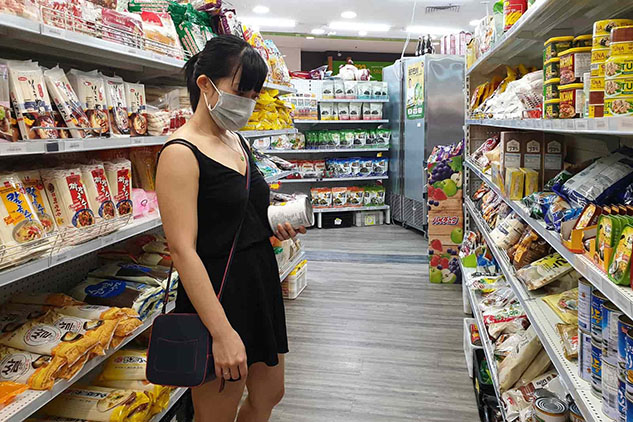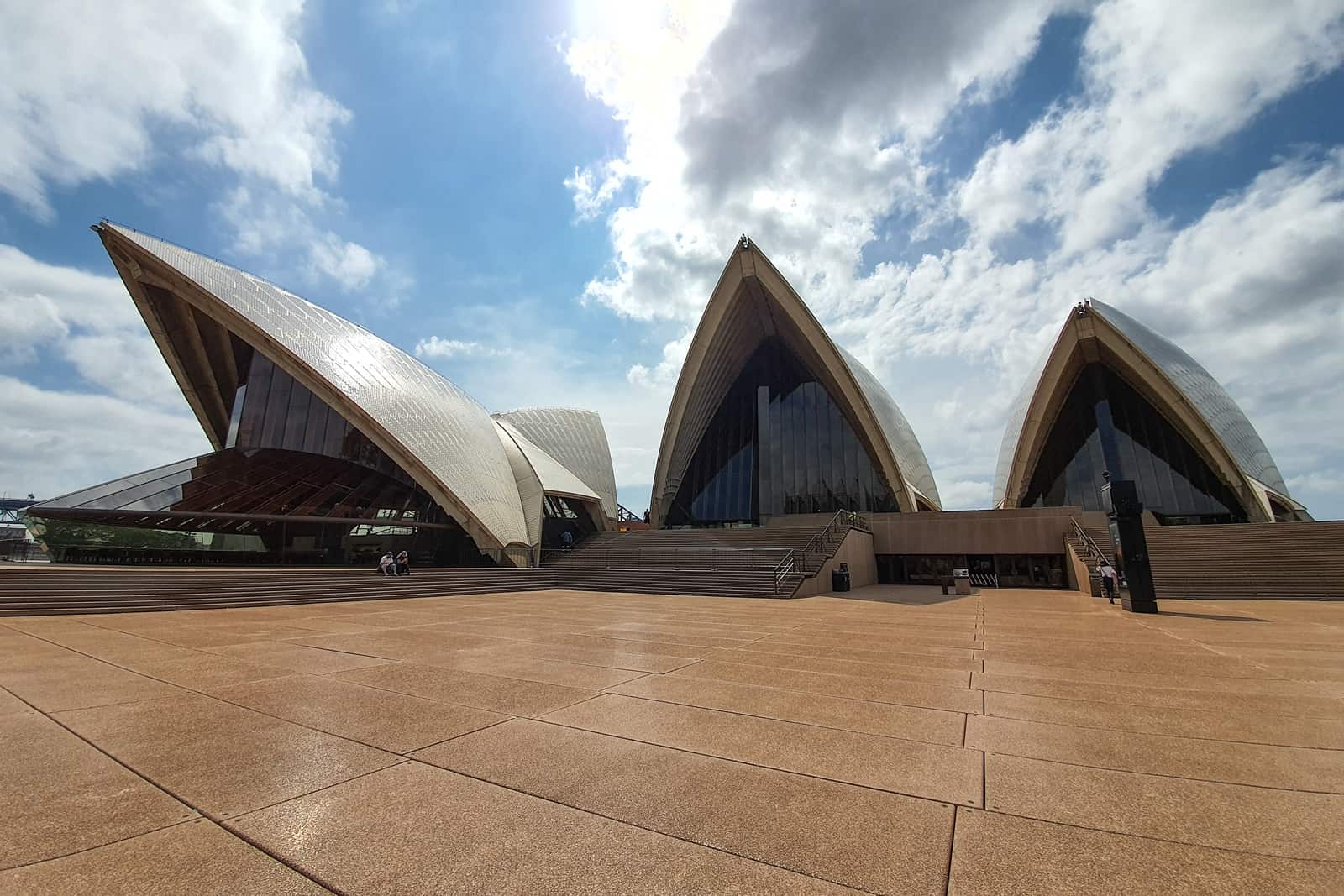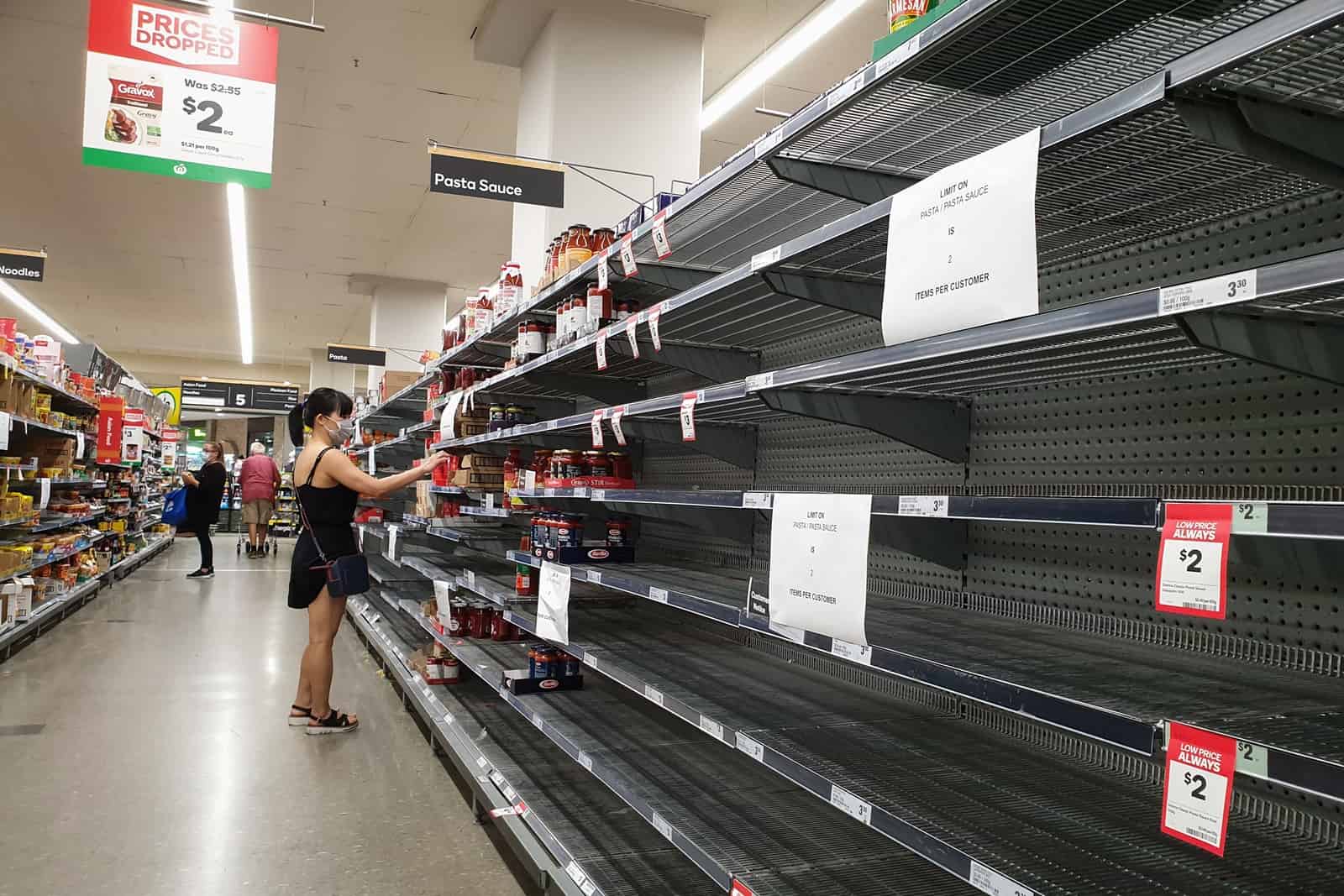Coronavirus pandemic kills Australian working holiday dreams

Source:Shutterstock
As the coronavirus epidemic drags on, many young Taiwanese who went to Australia on working holiday visa can no longer find enough work to fund their stay. Australian Prime Minister Scott Morrison has advised them to return to their home countries, putting them between a rock and a hard place. Should they give up their dreams they had when going to Australia? Would they be able to start anew after returning home?
Views
Coronavirus pandemic kills Australian working holiday dreams
By Linden ChenFrom CommonWealth Magazine (vol. 697 )
Editor’s note: Read our latest stories on the COVID-19 global pandemic
As the coronavirus epidemic drags on, many young Taiwanese who went to Australia on working holiday visa can no longer find enough work to fund their stay. Australian Prime Minister Scott Morrison has advised them to return to their home countries, putting them between a rock and a hard place. Should they give up their dreams they had when going to Australia? Would they be able to start anew after returning home?
In April, Australia on the southern hemisphere enjoys pleasant autumn temperatures. There are seagulls flying in the clouds and swimming circles in the sea, but the coast is deserted, not a soul in sight.
Before the outbreak of the coronavirus epidemic, Sydney’s spectacular coastline attracted 2.6 million visitors per year. However, since the Australian government enforced social distancing measures, banned gatherings and shut borders to all visitors, the popular Bondi Beach, normally a major tourist attraction, has remained empty.
The lockdown did not only put many Australians out of work, it also killed the dreams of many young people from Taiwan and elsewhere who had traveled to Australia on working holiday visa, hoping to finance a long stay with occasional jobs.
Last year, 13,697 Taiwanese arrived for working holidays in Australia, the fourth highest contingent behind young people from Britain, France and South Korea. If calculated in proportion to each country’s population, Taiwan even comes out on top.
Jimmy Chiu, regional manager at OZ Fair, an Australian education consultancy based in Brisbane, points out that Australia with its vast territory and comparably small population needs to rely on foreign workers to alleviate its labor shortage. In contrast to Japan, the United States and Canada, Australia does not impose a quota on working holiday visas. On top of that, the Australian minimum wage of 19.49 Australian dollars per hour (about NT$375) is very appealing to young Taiwanese.
Chiu observes that many young people regard a stay in Australia as a turning point in their lives. They apply for the working holiday visa before turning 31, the cutoff age, to work in Australia for one or two years until they have saved enough money to study for a master’s degree or take a vocational course.
“About 40 percent take this road,” says Chiu. People who find a job after finishing their degree often apply for permanent residency and Australian citizenship later on.
Many determined to make it in Australia now see their dreams shattered by the coronavirus pandemic. The Prime Minister Morrison has urged foreigners who can no longer finance their lives in Australia, because they either lost their jobs or cannot get financial support from their families, to leave as soon as possible to prevent putting a further burden on the pandemic-hit government. Among the young Taiwanese who came to work, this statement has triggered a sense of panic.
Australia unemployment expected to soar to 10%
Due to social distancing, there is no work left for many working holiday visa holders who used to work in restaurants, malls and hotels. And with the economic downturn, even farmers hesitate to hire the youngsters from abroad, which means that job prospects are more than bleak.
In mid-April, the Australian Department of Finance estimated that the country’s unemployment rate will soar to 10 percent by June from 5.1 percent now, should the pandemic continue.
The government’s welfare policy gives priority to citizens. Neo Hsu, a commis chef at the Vibe Hotel Canberra Airport who is preparing to immigrate to Australia, says Australian citizens who are affected by the pandemic are granted 1,500 Australian dollars (about NT$29,000) in financial relief every two weeks. Although the government allows working holiday visa holders to withdraw money from their superannuation accounts, the funds set aside for retirement, Hsu says the two measures are not comparable.
For fear of not being able to support themselves, many young Taiwanese opt to return home. Anna, a young woman who until recently worked as a sales staff in a luxury boutique near the Sydney Opera House, is one of them. She had always wanted to study for a master’s degree in interior design in the United States. In Taipei she used to work for an American company as a customer service worker. Last September she quit her job and bought a one-way ticket to Sydney.
“My main goal was to save up money for studying abroad, but in Taiwan saving money takes too long,” she says. After working full time for two years, she was only able to accumulate NT$150,000 of savings, so she followed the example of friends who had gone to Australia for work.
 Source: Shutterstock
Source: Shutterstock
However, after China locked down Wuhan, where the pandemic started, in late January, the number of Chinese tourists, known for their lavish spending on luxury goods, began to decline, affecting sales. Seeking to reassure local customers that it was safe to shop, Anna’s Chinese boss demanded that sales staff frequently wash their hands and wear face masks. This proved counterproductive because the locals assumed that people wearing face masks must be sick. As a result, Anna and her colleagues were stigmatized. Subsequently, when social distancing measures were ordered, sales hit rock-bottom.
Before the epidemic Anna worked 26 to 32 hours per week at the store, but in early March she was notified that there was no work left. That was the last straw. She bought a ticket to return to Taiwan right after that.
After spending 14 days in home quarantine back in Taiwan, Anna is not planning to return to Australia although her working holiday visa is still valid for half a year. She is not confident that sales will pick up quickly.
An overseas Chinese in Australia observes that at least 70 percent of Taiwanese working holiday visa holders have prematurely left Australia as a result of the pandemic. But there are still some who are gritting their teeth, determined to hold out until the situation improves because they are not ready to give up on their dreams.
"Kind of reluctant to go back"
Reina from Taiwan does not pause for a minute as she wraps vegetables at a packing house in the suburbs of West Sydney. After checking thoroughly to make sure the veggies in her hands are flawless, she gingerly bags them.
Her job here adds up to two rare seven-hour-days of work in a whole week. Reina, who used to work the legal maximum of 38 hours per week before the pandemic hit, is grateful that she still has some paid work to make ends meet. “The wage for these 14 hours will cover my living expenses for a week,” she explains.
 Source: Shutterstock
Source: Shutterstock
It was not easy for Reina, who holds a master’s in film studies from the University of Kent in the UK, to find this job. Before coming to Australia in February, she worked in marketing for a cinema in Taipei.
“I wanted to see how it is to live and work in a metropolitan like Sydney,” she says. It is not that she did not ponder returning to Taiwan when the epidemic worsened after her arrival in early February. Appeals from her concerned parents to come home only added to her conflicting feelings.
“But I have just arrived and signed a rental contract. I am not ready to pack up and go home just now, I want to hold out for a while,” remarks Reina.
Currently forced to work a two-day work week, Reina uses her ample spare time to read up on marketing expertise and learn more about social media marketing. She plans to take advantage of her year abroad to look at Taiwan from an outsider’s perspective, hoping to benefit from these insights when returning to the workplace in Taiwan.
Another option: Staying in Taiwan to Build Strength for Future
Chiu is not optimistic about the short-term outlook. Although Australia continues to issue working holiday visas, the government is unlikely to lift the entry ban on foreigners before the end of the year. This means the working holiday path to Australia for young Taiwanese will remain blocked for one to two years.
Given this situation, Weber Chung, senior vice president and chief HR officer of Taiwanese job bank 104.com, has some advice. Young people who cannot go to Australia for a working holiday as planned should take this opportunity to make “deep squats” to build strength by taking a fulltime job or studying for an advanced degree in Taiwan within the next twelve months. He believes this will put them at an advantage when making a new start after the pandemic is over.
Chung notes that a total of 650,000 vacancies were listed on 104.com in March and although this figure declined to 600,000 in April the job market in Taiwan is relatively robust. “Since Taiwan did a good job in fighting the epidemic, the ratio of job seekers to job openings is still much better than Europe and North America.”
Should young people still find it hard to give up on their plans to develop their careers abroad, Chung suggests that they focus on Taiwanese companies that are expanding their presence in countries covered by the New Southbound Policy. The members of the Association of Southeast Asian Nations (ASEAN), India and Sri Lanka all have close contacts with Australia. “Equipped with a working holiday experience in their DNA, these young people might be able to provide Taiwanese businesses with valuable insights,” believes Chung.
Have you read?
♦ Higher Productivity ≠ Higher Pay: The Forces behind Taiwan’s Stagnant Wages
♦ Food Delivery Platforms are Changing how Young People Work in Taiwan
♦ Generational Wealth Gap: The Older, the Richer
♦ ‘Farewell, Taiwan’: Taiwan’s Growing Talent Drain
♦ What Does Living Abroad Do to Your Self-Awareness?
Translated by Susanne Ganz
Uploaded by Judy Lu






